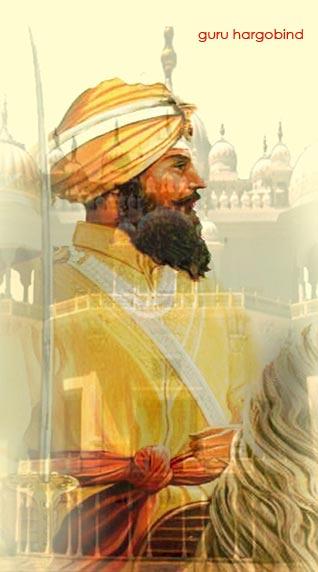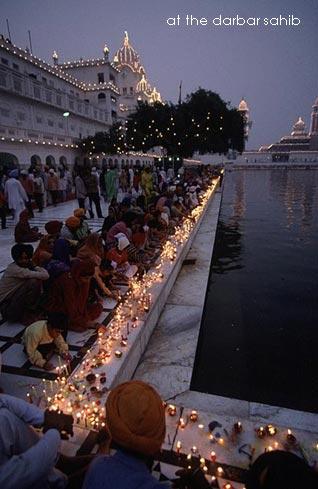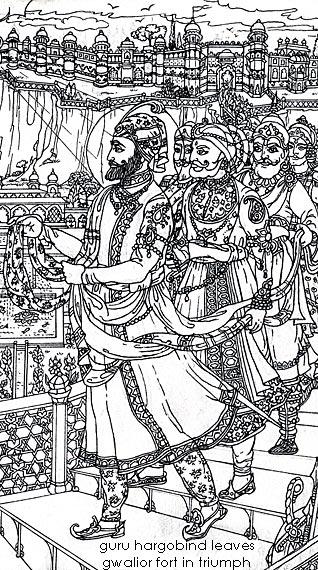
Images, above, and second from bottom: courtesy - Angrez Photo Below, first from bottom - detail from sketch by The Singh Twins. [Copyright: www.SinghTwins.co.uk]



Current Events
Celebrating Diwali
by JESSI KAUR
The memory of my childhood Diwali celebrations in India leaves me nostalgic even today.
I waited all year for the festival that lit up young and old alike. The very air was redolent with rich mithaa-ies and crackling phuljharries; thunderous rockets burst like little suns in the night sky. Even though our young hearts missed a beat at the deafening explosions, dressed up in our newest and very best outfits, we watched awestruck and clapped our hands in glee.
It was fun and festive, stately and mystical, with visions of a mythical king coming home and the proverbial victory of good over evil. It was magical and luminous, a night when the stars came down to earth and everything was right with the world. Friends and neighbors dropped by with boxes of good wishes and hugs were exchanged as everyone lingered for a bit before going to the next household to spread more bonhomie.
Many decades later, I learnt that Diwali was celebrated for different reasons by the various faiths. While also a Hindu festival, the Sikhs celebrated it as a commemoration of "Bandhi Chhor" day, when our Sixth Master, Guru Hargobind arrived back into Amritsar after a triumphant march from Gwalior - good having prevailed over evil.
When I was a child, Diwali was celebrated by everyone - as it is still today.
Amongst the Sikhs, it is particularly celebrated in Harmandar Sahib, Amritsar, the tradition started by a much-loved and secular Emperor of Punjab, Maharaja Ranjit Singh. It was very inspirational for me to hear about our history, of Guru Hargobind Sahib's helping 52 of his co-prisoners - all rajas - to be released from custody in the tyrant Jehangir's Gwalior Fort. That gave me a personal and dear reason to celebrate the victory of good over evil that Diwali had always symbolized for me.
Perhaps it was the all embracing life style of my mother from whom I imbibed respect for various cultures. I remember her explaining the importance of the new moon during Eid -ul- Fitr and how it marked the end of Ramadan. She would also use the occasion as a teachable moment to stress how fasting was not a Sikh way of life. Once in a while when the spirit moved her, she would serve the family seviaa(n) di kheer in memory of her neighbors and friends left behind in Pakistan.
Eid-ul-Fitr, she explained, was not to be confused with Eid -ul-Juha when a goat was sacrificed and the Muslims all over the world had mutton as part of their celebratory feast. Another teachable moment: we did not believe in sacrificing animals and the injunction for us was to eat jhatka meat only. ["Jhatka": killing an animal with a single-blow, without ritual or fanfare]
I learned at an early age about diverse festivals and multiple customs, but I also learned the finer differences of the Sikh tradition.
We observed birthdays, gurpurabs and anniversaries and reveled in the richness they brought to our lives. As children we watched our Hindu neighbors enact the ram lila legend and looked forward to the burning of the multi-headed, larger-than-life effigies of Ravana and his two brothers. All of us girls enjoyed the puri aalu, panjiri and small change we got from our neighbors during kanjaka, and for many years tied rakhri to our brothers and cousins.
This latter ceremony was abandoned by many of us as we moved out of the cultural influences of India, and understood its true import, which was contrary to Sikh values.
We knew some of these festivities were not strictly a part of our Sikh tradition but we were a part of the larger milieue of cultures and enjoyed participating in them all.
The birth anniversaries of our Gurus were extra special. Parbhat-pheries (early morning mini-parades of shabad singers in Sikh neighnorhoods - similar to carol-singers in Christian societies) started days ahead and built up to an entire day of kirtan and langar held in gigantic divans in sprawling shamianas (tents) put up in the open fields of old Delhi. The parbhat-pheries always stopped at our house. Dewey winter mornings found us bundled up and waiting for the loving singers in whose off-key singing we joined unabashedly. Our friends from other traditions were right there, holding their hands out for parshad.
Since moving to the U.S., I have attended Passovers and have been so inspired by the Sader that I wrote a Song of Gratitude based on Sikh history. I have often wished that Sikhs who are spread out all over the world would commemorate Vaisakhi not just with bhangra performances but a shared meal of sarson da saag , makki di roti and sweet lassi. Adding to the mix, a sprinkling of stories and songs that recount our challenges through the centuries and celebrate our unvanquished spirit that prevails at all times. The cherry on the top would be inviting our friends from other communities to join us on our special day - our New Year, our collective Birthday and our Thanksgiving Day - all rolled into one.
The contradiction of the current era in which political correctness masks rigid religious divides is much evident in the way we live our lives.
Gone are the days of innocence when oneness was not preached, it was lived. We did not talk about interfaith outreach, we simply reached out. There was no political correctness, we were intuitively correct.
Muslim friends greeted us with Sat Sri Akal, while we bade them Khuda Hafiz as they went on their way. All of us knew who we were; distinct identities in the colorful tapestry of multiple faiths enriched by the sheer proximity to each other.
Recently, I joined a group of Hindu friends who were observing Navratri, the nine nights of prayer to celebrate the multiple manifestations of the Hindu goddess, Durga.
It was also the Gurpurab of our Fourth Master, Guru Ram Das. I shared with my friends the special gift of Guru Sahib to the world: the Darbar Sahib of Amritsar, whose foundation was laid by a Muslim mystic at the behest of our Guru; the same Harmandar which has four doors, each facing a different direction, welcoming people of all castes, creeds and faiths.
In turn, I learned that while the nine days of Navratri were symbolic of different Hindu manifestations of divinity, they too considered the true Lord to be formless, above and beyond all idols.
We ended the celebration by chanting Guru Gobind Singh's "Tuhi Tuhi" - "It's You, only You, O Lord!" It was led by a Hindu lady who had heard it at a gurdwara and was touched by its sweet simplicity.
The take away for us was a better understanding of each other's faith and culture.
I realize how important it is for all of us to celebrate our festivals and special occasions that mark our own traditions; it strengthens our roots. I offer that it is also enriching to spread out our branches and participate in the festivities and cultural events of other faiths. By sowing the seeds of understanding and honoring diverse traditions, we will perhaps make life on our shared planet a tad more harmonious.
May the spirit of Diwali bring love and light to all.
November 4, 2010
Conversation about this article
1: Bibek Singh (Jersey City, U.S.A.), November 04, 2010, 11:11 AM.
Dr. Karminder Singh Dhillon (Boston) has done a deep analysis on this subject. Though he agrees that Sikhs should celebrate Diwali, yet he mentions that such festivals should be celebrated only within the spirit of good citizenship and not for religious reasons. In his analysis, he has clearly mentioned that Diwali has no religious or spiritual importance for Sikhs.
2: Mohan Singh (Toronto, Ontario, Canada.), November 04, 2010, 11:19 AM.
Awareness of Gurmat and Sikhi is increasing, especially in young Sikhs in the diaspora. Masya (dark moon), puranmashi (full moon), sangrand, rakhri, shradh, karva chauth, navratri and Diwali have no place in gurmat.
3: Khalsa Lakhvir Singh (Nairobi, Kenya), November 04, 2010, 11:56 AM.
This article has, in many ways, addressed and corrected many of my own silent and unacknowledged prejudices. Thank you, Jessi Kaur ji.
4: Gurpal Singh (Unite Kingdom), November 04, 2010, 5:00 PM.
Who are these so-called 52 Rajas? Do they have names and kingdoms recorded in history? Who are their descendants?
5: N. Singh (Canada), November 04, 2010, 5:24 PM.
Having grown up in Britain, my parents made it a point to explain that neither Diwali nor Rakhri were part of the Sikh religion or religious practices. Although not a deeply religious man, my father explained to me the significant of Rakhri and how it demeaned women ... its message although subtle was pervasive and passive. Once having heard from my Hindu friends about Diwali, I pushed my mother on celebrating it. She explained that the Sikhs have many such incidents in Sikh history such as Bandhi Chhorr and this was no greater than other sacrifices made by the Sikh Gurus and Shaheeds. However, she offered me the option of going to the gurdwara to pay my respects but no sweets or fireworks. To be perfectly honest I don't care much for Diwali and never celebrate it now that I am an adult. However, quite recently I learned that after Guru Gobind Singh ji left the earth and Sikhs were dispersed everywhere, Bhai Mani Singh instigated the practice of encouraging Sikhs to celebrate both Vaisakhi and Diwali at Amritsar as a way to get them all together and garner the Sikh Spirit without arousing the suspicions of the enemy. I was very moved by this story and tactic, and I am developing a mild 'tolerance' for the whole thing which is why I have decided to post on this subject.
6: Baljit Singh (Canada), November 04, 2010, 7:19 PM.
Very nice.
7: Sangeeta Luthra (San Francisco, California, U.S.A.), November 08, 2010, 8:13 PM.
The spirit of this wonderful article goes right to the heart of Sikhi - a sense of shared humanity and a deep respect for people of all traditions and this article echos that sentiment. Thank you, Jessi Kaur!
8: Savinder Kaur (Malaysia), November 09, 2010, 12:20 AM.
Jessi Kaur ji: very nicely said in your second-last paragraph. I wish every Sikh would start to think like what you pointed out. Thanks, Jessi ji. Well, as for N. Singh, I loved the term 'mild tolerance' in getting all of us together. Somebody please enlighten us on the Q by Gurpal Singh.


